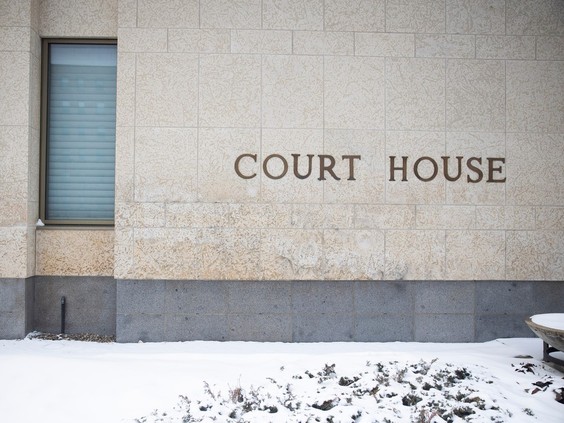Government legal documents assert that for the court to determine whether a new law concerning “gender identity” is constitutional would now be an “academic exercise.”
Brandon Harder, Regina Leader-Post
The Saskatchewan government has filed paperwork as part of an attempt to get the legal action originally brought against its so-called pronoun policy dismissed by the court.
The documents, dated Dec. 1, take aim at the still unresolved legal action brought by the UR Pride Centre for Sexuality and Gender Diversity in late August.
That action was an attempt to stop and have deemed unconstitutional a government policy requiring school staff in Saskatchewan to get parental consent before a student under age 16 can use a preferred name or pronoun in school.
Since then, a number of advancements have occurred outside of court, including the government effectively replacing the policy with a law amending the Education Act (called the Parents’ Bill of Rights) that features nearly identical wording, and the use of the notwithstanding clause contained within the Charter of Rights and Freedoms, in an apparent effort to shield the new law from certain constitutional challenges.
The Dec. 1 filing was likely unsurprising to the parties involved in the legal action, as a private lawyer working for the government signalled the intention to do so when it was announced the original policy was rescinded.
In two separate Notices of Application, which come at the issue via different court rules, the government asks the court to strike out, dismiss or limit the UR Pride action, which is technically termed an “Originating Application.”
Through the documents, lawyers for the firm MLT Aikins, which represents the government, explain the reasons they feel the court should do so.
In one document, the government asks for an order striking out or dismissing the action on the basis that it’s “moot” and is therefore “an abuse of process, doomed to fail and/or is frivolous and vexatious.”
This advertisement has not loaded yet, but your article continues below.
Article content
The action originally targeted the now-rescinded policy, but UR Pride filed its own document, also on Dec. 1, seeking to amend the action to now take aim at the new law instead.
The government document states: “The Policy has been rescinded by the Minister. As such, the Originating Application is moot. There is no live controversy remaining between the parties as the substratum of the litigation has disappeared.”
However, in another document, the government seems to put forward its requests with an understanding that UR Pride is now attempting to target the law instead of the policy.
That document puts forward a number of “threshold questions,” which effectively ask the court to determine whether, given the invocation of the notwithstanding clause, it can or should determine whether the new law violates certain Charter sections, and whether the original Charter aspects of the case are moot, as the government suggests.
The document suggests that to first determine these issues would save time and expense, be more convenient and preserve fairness.
Not deciding these issues before proceeding to hearing arguments about constitutionality “may unnecessarily complicate the hearing and add considerable expense to all parties,” the document notes.
There can be “no collateral consequence that will be advanced” by fully determining whether the new law breaches sections of the Charter concerned with equality (Section 15) and security of the person (Section 7), the document states, suggesting that to do so would be an “academic exercise.”
As such, the “principle of conservation of judicial resources,” should prevent the court from undertaking such a determination, according to the government’s document.
Proceeding nonetheless would “constitute an intrusion into the role of the legislative branch,” given that the making of the law and the invocation of the notwithstanding clause were done as part of a “legitimate legislative function,” the document continues.
Among proposed amendments to the UR Pride action is a new argument that the section of the government’s new law that replaced the pronoun policy violates Section 12 of the Charter, which is concerned with cruel and unusual punishment.
The law was enacted after a judge granted an injunction, stating the original policy would cause “irreparable harm” to affected students.
“Unconscionably, the purpose and effect” of the new law “is evidently to inflict such irreparable harm on gender diverse students,” the UR Pride document states, noting the “state-imposed treatment” of the law is cruel and unusual.
While the new law specified the notwithstanding clause allows its section concerned with “gender identity” to operate in spite of sections 2, 7 and 15 of the Charter, it makes no mention of Section 12.
Neither do the government documents filed Dec. 1.
If, when and how the government’s legal team will address the claim of cruel and unusual punishment was not clear to the Leader-Post at the time of writing.
bharder@postmedia.com


